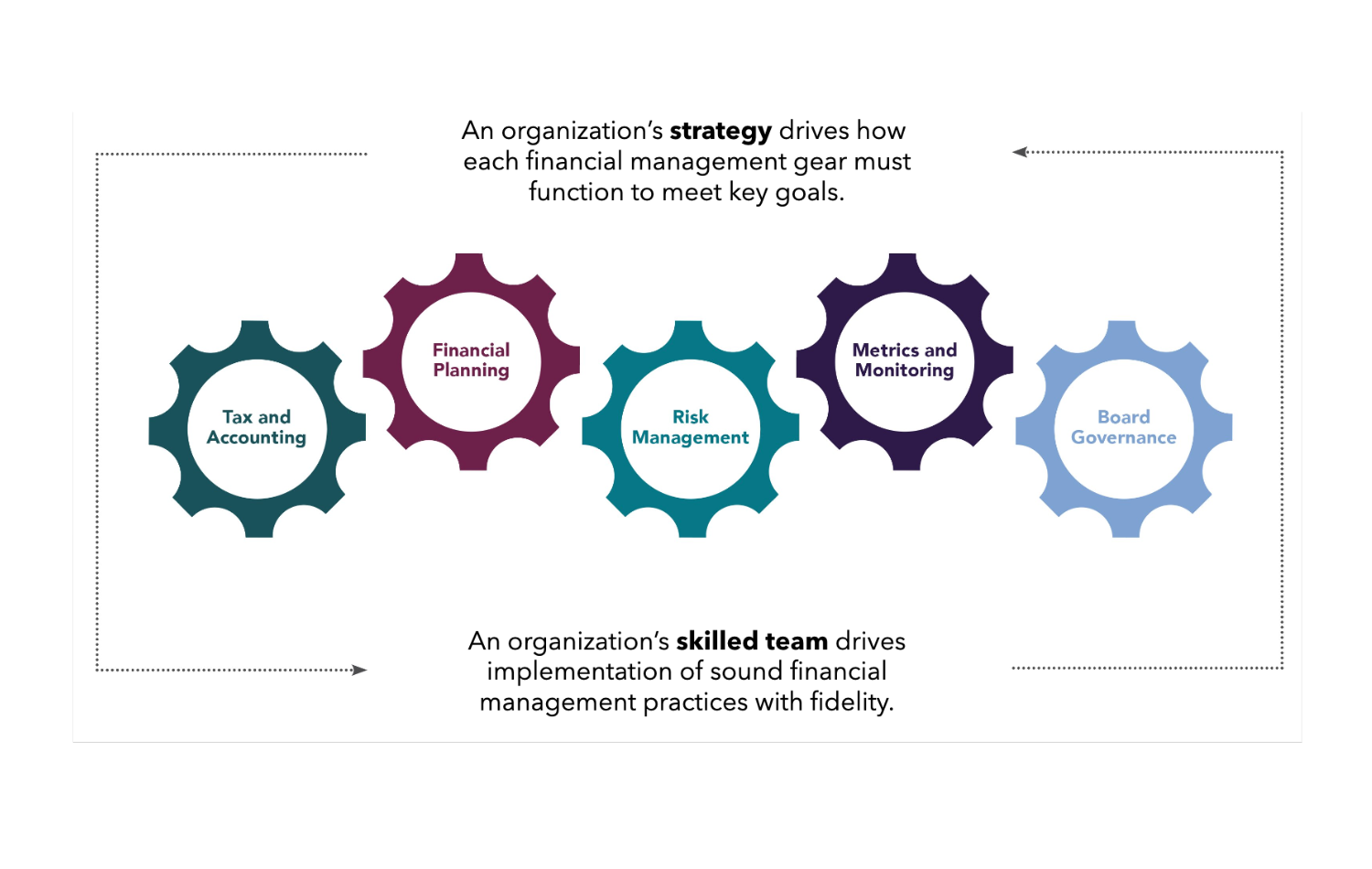There is no shortage of coverage about the uncertain funding landscape facing many sectors in the U.S. Education is no exception. Emergency federal funding issued during the COVID-19 pandemic is winding down. Enrollment declines are putting pressure on many school districts across the country. And some education nonprofits are still dealing with the financial ripple effects of the pandemic, bank failures, and financial fraud in recent years.
Amid these challenging headwinds, many nonprofit education leaders don’t receive formal training in financial management. Without the right support for leaders to build and deepen their financial acumen, many organizations’ mission-critical work in service of students and families is at risk.
To address the needs of nonprofit CEOs and board members who are responsible for financial leadership and oversight, Bellwether and City Fund released Secure and Resilient: A Financial Management Guide for Education Nonprofits. The guide is a starting point for effective financial management that draws on insights from nearly 20 interviews with CEOs and board members in the education sector. The guide provides practical advice on five interrelated components of financial management: 1) tax and accounting, 2) financial planning, 3) risk management, 4) metrics and monitoring, and 5) board governance. It’s a tool that leaders can use to strengthen financial management practices at their organization, right away.
In addition to practical tips across the five components of financial management, the guide includes the following key findings.
- Effective financial management is grounded in an organization’s strategy. An organization’s finances, when planned well, are a reflection of its business model (i.e., how it raises and spends money) and its overarching mission, vision, and impact goals. Financial management is not a separate, siloed task, but one that is deeply interwoven with strategy.
- A strong team with the right skills is essential. Leaders at all levels of an organization — from the board to the CEO to the finance team — must build skills to drive effective financial management. But it’s often challenging for nonprofits to raise general operating funds that can be invested in robust internal capacity, including effective financial management.
- Leaders need support when confronting financial management challenges. Many nonprofit leaders interviewed noted how isolating it can be to navigate a financial crisis or unexpected event. They shared how moments of uncertainty underscore the importance of board transparency, investment in a skilled finance team, and candid communication with funders. Successful leaders leaned into the belief that they didn’t have to shoulder the work of strengthening financial management practices alone.
- Financial management support can drive equity across the education sector. Many grassroots education nonprofits are led by people of color. In some cases, leaders are chosen because they represent the community the organization serves, or because they bring another important experience or perspective to bear. Often, it is these leaders who don’t have formal financial management training. Supporting leaders of all organizations, and especially leaders of color, to be effective stewards of their mission by securing their financial well-being will have a net positive impact on equity across the sector.
No two organizations, or nonprofit leaders, are alike. Although effective financial management does need to be customized to each individual organization, the Secure and Resilient guide is a starting point to break down barriers in financial management and build up nonprofit leaders’ skill sets.
Listen to nonprofit leaders and board members reflect on the role strong financial management has had in their everyday work in a Bellwether webinar featuring Steve Colón (CEO, Bottom Line), Chinesom Ejiasa (chief financial officer, Global Greengrants Fund), and Melissa Wu (CEO, Education Pioneers). And learn more about the principles of sound financial management here.
